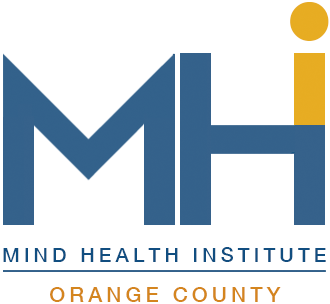OUR SERVICES
MEDICATION MANAGEMENTPsychiatric medications can be an integral part of a comprehensive treatment plan for many conditions including depression, anxiety, ADHD, Bipolar Disorder, Schizophrenia, PTSD, eating disorders, behavioral problems, etc. Our psychiatrists are all well trained and always attempt to adhere to evidence-based standards. We believe that educating you about appropriate options is essential for you to make the best decision about your treatment.
MEDICATION MANAGEMENT & THERAPY
In addition to medication management, all of our psychiatrists can provide psychotherapy services in an array of focus areas. In contrast to the more common 'split-treatment model', this combination treatment (which is very common in other parts of the country) can allow for a more cohesive treatment and affords your psychiatrist a deeper understanding of your situation. This, in turn, can allow for a more direct understanding of the role of medications in your individualized treatment plan.
INDIVIDUAL THERAPY
Often called psychotherapy, individual therapy can help motivated individuals address a range of psychological issues to better cope with a various stressors. All of our providers provide individual therapy for a variety of conditions or problems. We always try to match an individual with the best provider for him/her — whether within our clinic or with outside community resources and/or providers. Individual therapy can be helpful for a variety of issues including life transitions, depression, anxiety, ADHD, Bipolar Disorder, and PTSD as well as various medical concerns.
COUPLES THERAPY
This type of therapy is often reserved for relationship issues with your partner or spouse. However, it also can be useful (often referred to as Dyadic Treatment) for relationship problems with any other key people in your life including children, parents, siblings, etc.
FAMILY THERAPY
This type of therapy is often essential in order to address problematic interactions within a family system. Often undervalued by providers, family therapy can help address a variety of issues related to problematic behaviors and relationships as well as many other psychiatric conditions. We also firmly believe that an educated family is key to providing the best possible support regardless of the condition.
COGNITIVE BEHAVIORAL THERAPY
Often referred to as CBT, this type of therapy can be utilized for a variety of conditions. However, it has particularly strong evidence to support its use for anxiety disorders (including generalized anxiety, separation anxiety, social anxiety, panic attacks, OCD, and PTSD) and depression. Many recent seminal studies support the use of CBT alone or in combination with medications.
SUPPORTIVE THERAPY
This psychotherapeutic approach integrates various models including psychodynamic, CBT, and interpersonal therapy to reinforce a patient's healthy and adaptive patterns of thoughts and behaviors. Therapists practicing this model are generally engaged, encouraging, and supportive in their style in an effort to promote healthy defense mechanisms. Education is also key to this model in order to help an individual understand his/her condition and the best treatment approach.
PSYCHOLOGICAL ASSESSMENTS
Psychological and neuropsychological assessments will help our team understand, at an in‑depth level, what is happening with your brain and body.
Some disorders we commonly evaluate are:
- Developmental Disabilities
- Speech and Language Impairment (of unknown origin)
- ADHD and Learning Disabilities
- Intellectual Disability
- Acquired Neuropsychological Disorders
- Prenatal Substance Exposure (e.g., Fetal Alcohol Syndrome, Alcohol Related Neurodevelopmental Disorder)
- Malnutrition & specific nutrient deficiencies affecting brain function
- Trauma related to Abuse & Neglect
- Psychiatric Disorders (e.g., somatization, Personality Disorders etc.)
These evaluations can help us determine a patient’s:
- Executive functioning—the ability to manage and control behavior and thoughts
- Genetic syndromes
- Prenatal influences on development
- Systemic illness that affect the nervous system
- Brain injuries
- Developmental conditions such as autism or learning disabilities
- We will have a clinical interview with the patient and/or parent (when necessary) where we talk about current problems and expectations for treatment. After this initial meeting, we will review of any relevant school, past assessments, IEPs and or medical records.
- We work together with other professionals involved in the treatment plan so we can understand the patient's full profile and provide the best patient care.
- If needed, we may schedule a classroom observation before the psychologist meets with the patient, which helps the psychologist understand how the patient is functioning academically and socially.
- In follow-up sessions, we will have the patient take different standardized tests that measure brain and emotional functioning for:
- Attention
- Memory
- Language
- Behavioral/emotional functioning
- Visuospatial abilities
- Fine motor skills
- After we complete the testing, we draft a comprehensive report to create a complete picture of the patient. We will schedule a conversation to talk about the results and make recommendations for the patient’s treatment plan. In that meeting, the psychologist, psychiatrist and parents and/or patient as applicable are all present.
Click here to learn more about our testing services.
PHARMACOGENOMIC TESTING
Pharmacogenomic testing is a technology that provides information about our individual metabolism of various psychotropic medications by our liver. It is a quick and painless test that merely requires a DNA sample acquired by a cheek swab. This information can potentially help guide medication choices as it provides information unique to each individual. There is a small but emerging evidence base that supports using this type of testing to help guide medication choices for the treatment of depression.




